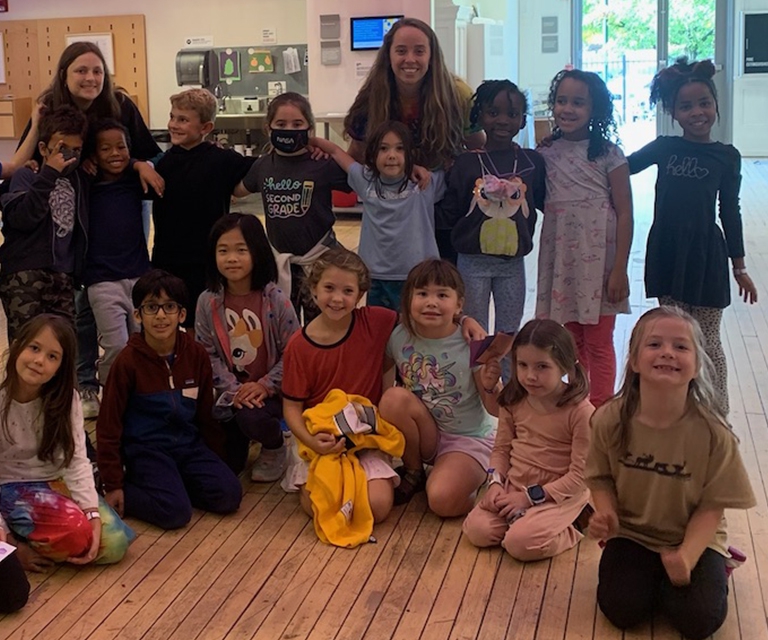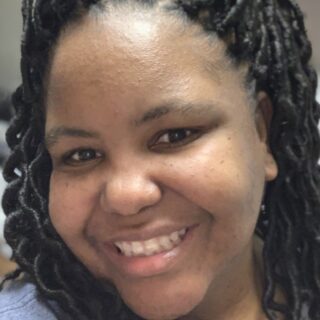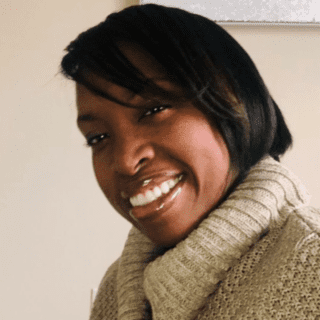
Student Teaching at Falk Laboratory School: Kyra Rettew
The Fanny Edel Falk Laboratory School, a K-8 laboratory school affiliated with the University of Pittsburgh School of Education, serves as a demonstration school: a place where teachers learn to teach. Each year, approximately 20 students from the Pitt School of Education complete their student teaching under the mentorship of Falk teachers.
This is the first profile in a four-part series about student teaching at the Falk Laboratory School, originally published on the school’s website.
First- and second-grade teacher Katie Spence did her student teaching under Chelsea Butela. This year, Spence has Combined Accelerated Studies in Education (CASE) student Kyra Rettew with her in the classroom. (Under Falk’s looping model, Spence began working with this class last year, when they were first-graders. Next year, she’ll welcome a new cohort that will be with her through first and second grade.)
“This is my first time having a student teacher,” Spence says. “So I was nervous. ‘Now I have to be a mentor to this person.’ Feeling young myself, I was worried I wasn’t going to be a good mentor.”
But being close in age has helped Spence put herself in Rettew’s shoes, remembering what was helpful when she was in Butela’s classroom.
“It’s important to have a good relationship with your teacher and I’m grateful that I do,” says Rettew. “I feel like that makes the experience so much better and easier.”
Spence has organized Rettew’s time in the classroom the same way Butela structured hers when Spence was a student teacher, easing Rettew in little by little. Early on, Kyra helped run the morning meeting, then took the lead in preparing and delivering a math lesson.
As Rettew’s responsibilities have increased, she has had ample time to observe and learn from Spence’s teaching, build a rapport with Room 122’s second-graders, and help out with group work and classroom management.
“I’ve learned so much in these past few weeks that you can’t really teach in a classroom,” says Rettew.
That gradual ramping up of Rettew’s responsibilities has also allowed Spence to alternate lessons with her, just as Butela did when Spence was a student teacher. Rettew might run a morning meeting one morning, then watch the next day as Spence takes the lead. That gives the student teacher a chance to run the lesson themselves and also to observe how their mentor does it.
“This morning I ran the meeting,” says Rettew, “and Katie interjected when she saw that something wasn’t going the right way. It was something I hadn’t even noticed.”
“The beauty of having two people and it being more of a partnership is that I can say, ‘Let me check in real quick because I’m noticing that something is happening with these three friends over here,’” Spence says. “Or the other day, Kyra said, ‘This is a lot like this other thing that we did the other day,’ and it was a great connection that I hadn’t even thought about.”
Over the course of the term, Rettew gained experience with each part of the curriculum until November, when Spence left the classroom altogether. On a day in early December, Spence is seated in the hall outside the classroom while Rettew, inside, guides students through a language arts lesson. She’s still available for assistance—and when a student heading to the bathroom runs through the hall, she reminds him to walk—but inside room 122, it’s Rettew’s show.
Having a student teacher in the classroom is much more than a second set of hands, Spence says:
“I have another set of eyes, another brain full of ideas. Kyra brings so many things to the table. When I’m reflecting on a lesson plan and I say that I just don’t know what to do with this, Kyra will have ideas. It’s not just, ‘Oh, good, she can help me laminate this.’”
Among the most important things that Spence has tried to communicate to Rettew, she says, is the importance of taking chances and trying new things. It’s part of what she calls the “extra layer” to the experience of student teaching at Falk.
“I think student teaching really gives you that permission to try something and reflect in a teachable way instead of saying, ‘Oh no, the world is over because now I have to teach the letter E tomorrow because we didn’t have time today,’” Spence says.
“I told Kyra, ‘Give it a try and if it doesn’t work, it doesn’t work,’” she continues. “I have lessons where I say, ‘We will try this again tomorrow.’ It’s important to be OK with that, knowing we’re human and we’ll try it tomorrow.”




